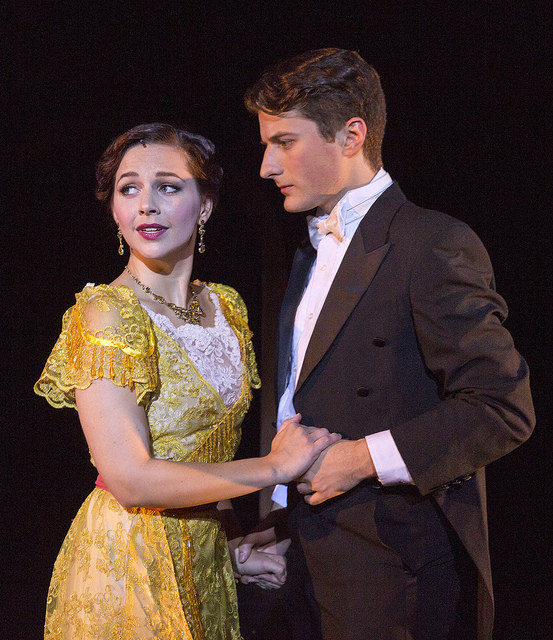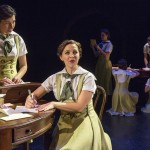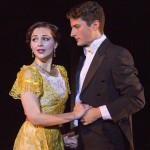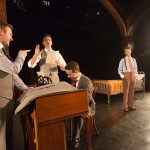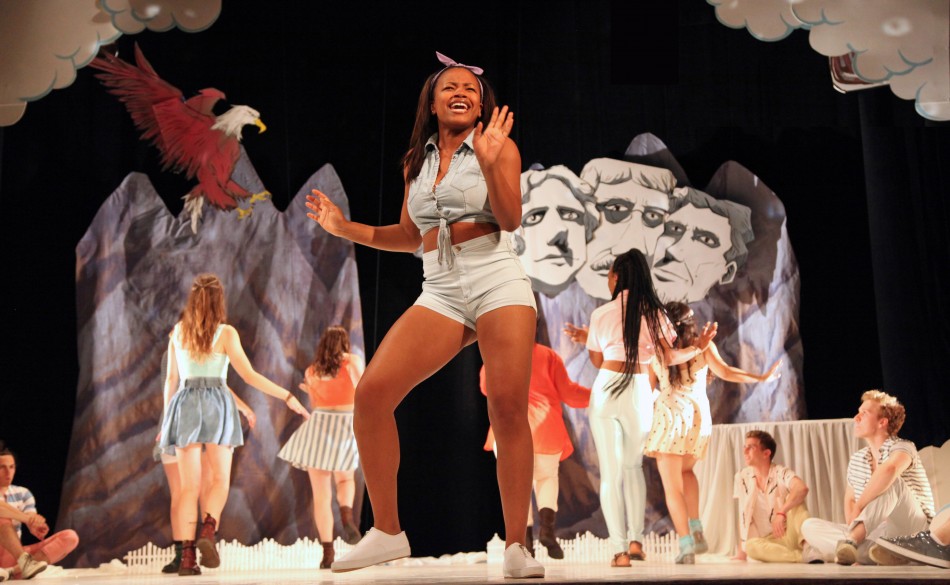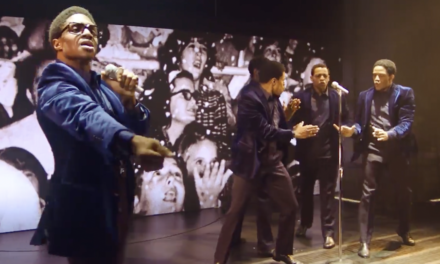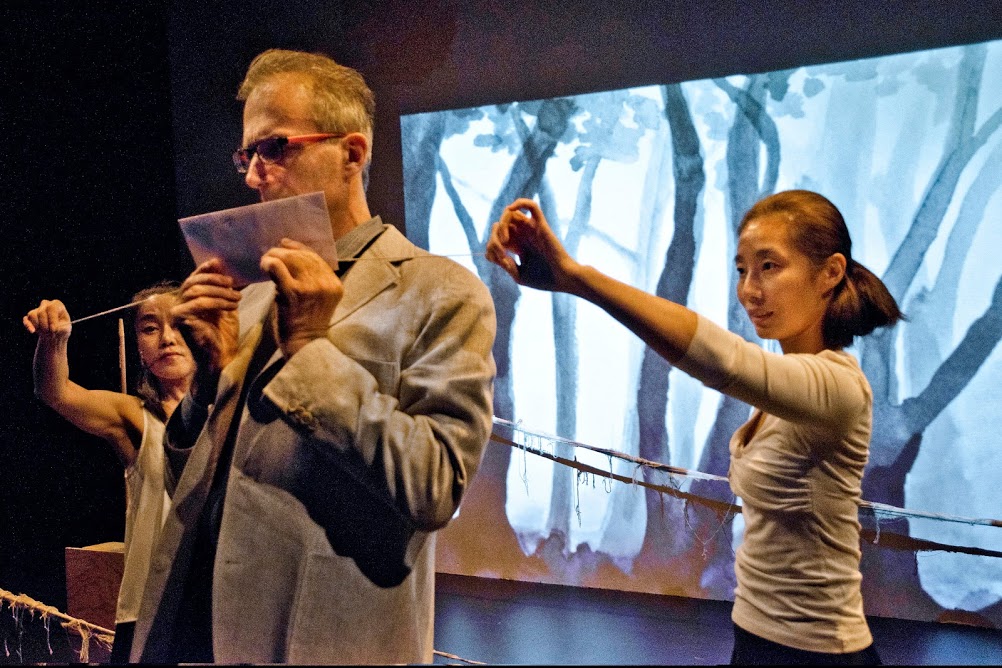Theater Review by Samuel L. Leiter
Before Scott and Zelda there was Scott and Ginevra, she being one of Chicago’s “Big Four” debutantes during World War I, when F. Scott Fitzgerald was a Princeton undergraduate and Ginevra King was at the posh Westover School in Connecticut. Their romance, much of it epistolary, was doomed by class and financial differences, but it became fodder for Fitzgerald’s writing, including his novel, This Side of Paradise (1920), and The Great Gatsby, where Ginevra was probably Daisy Buchanan’s prototype.
Using This Side of Paradise as their primary source, but mingling it with biographical material, Cara Reichel (book/direction) and her husband, Peter Mills (book/lyrics/music), recount the Scott-Ginevra affair in the ironically titled The Underclassman, the Prospect Theater Company’s ambitious and often surprisingly refreshing musical that looks at social class, friendship, and an all-male Princeton in the 1910s. License has been taken, but most characters bear the names of actual persons, including Scott’s friends, Edmund “Bunny” Wilson (Billy Hepfinger, imposing) and John Peale (“J.P.”) Peale (Marrick Smith, capable), both later famous men of letters. The show, a decade in development, and given a 2005 production as The Pursuit of Persephone, remains imperfect, but has much to recommend it.
Nineteen actors, seven forming a multiple-role ensemble, rush through designer Sidney Shannon’s warehouse of period clothing, offering (despite a few missteps) a picture-perfect image of well-heeled students a century ago, including gowns with long white gloves and white ties and tails. An admirable accomplishment is how the music, costumes, dances (smartly choreographed by Christine O’Grady), and (for many) even hairstyles combine to create an idealized image of Ivy League life during the War to End All Wars.
At Princeton, Scott (Matt Dengler, a reasonable facsimile, with a pleasant tenor), was preoccupied with writing for the Triangle Club, famed for its drag-oriented theatricals. Reichel and Mills met as members of the now coed organization in the 1990s, and she is now a Triangle Trustee, so the show might be considered an homage to those bygone days. There is plenty of Triangle material in The Underclassman, but its core is the up and down love affair of Scott and Ginevra (Jessica Grové, radiantly adorable with a lilting soprano), who is also being wooed by the wealthy (and, expectedly, snotty) Yalie Tyler Pierce (Christopher Herr, stiff), a fictional name, whom she marries; subsequently, Scott, flunking anyway, leaves school to join the army. As someone remarks, using words attributed to Ginevra’s father: “Poor boys shouldn’t think of marrying rich girls.”
Mills’s copious score (played by eight musicians seated overhead at the rear) echoes popular music of the day, including the syncopation of ragtime; the dances resemble the Turkey Trot, the Castle Walk, the Foxtrot, and other popular styles, not excluding the waltz. There’s a terrific counterpoint song, “If Only/Only If,” and, late in Act 1, Edmund and Ginevra’s friend (and Scott’s first love), Marie Hersey (Piper Goodeve, amusing), sing “Let’s Don’t,” a Cole Porter-esque highlight. Several numbers make excellent use of actors playing a silent piano to offstage accompaniment.
The Underclassman’s biggest problem is that its narrative—whose ending is a foregone conclusion—is stretched too thin for a two-act, two-and-a-half hour production. Act I sets up the love affair and shows Scott being accepted into Princeton’s inner circle, while J.P. is blackballed (“Blackball”). There’s also a possibly unneeded scene with Scott and J.P. that seems to hint at forbidden feelings. Still, when Act 1 ended, I was buoyed by its amiable spirit, and excited to return for more of the same. Act 2 is darker, however, has fewer memorable numbers (Ginerva’s “Half and Half” stands out), shows Scott masquerading awkwardly in drag, and requires him to perform a corny eleven o’clock power ballad, “When I Remember You,” in a wife beater. I fell back to earth.
Although it’s not a magna cum laude show, Ann Bartek’s unit set of Gothic arches, Brian Tovar’s versatile lighting, and Cara Reichel’s adroit and sprightly staging—much of it cleverly using bentwood chairs—go a long way toward helping The Underclassman earn its sheepskin.
The Underclassman
Duke on 42nd Street Through November 30 www.prospecttheater.org
Photos: Richard Termine


